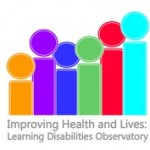
The literature on the efficacy of psychological treatments for excessive drinking is vast, but investigations into effectiveness of these treatments in individuals with other clinical diagnoses are considerably more limited. A recent paper published in Acta Psychiatrica Scandinavica reviewed the effectiveness of manual guided treatments for excessive alcohol consumption in individuals with a psychotic disorder. [read the full story…]










